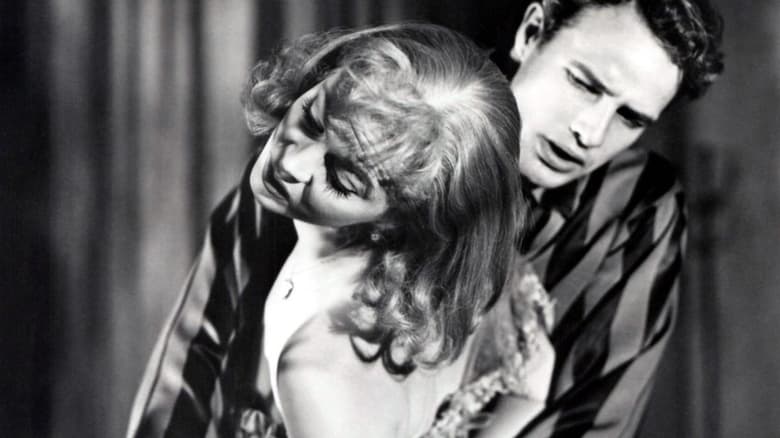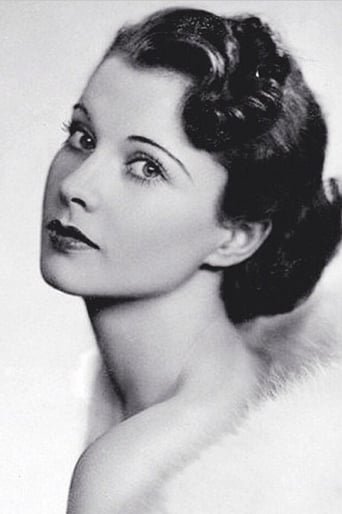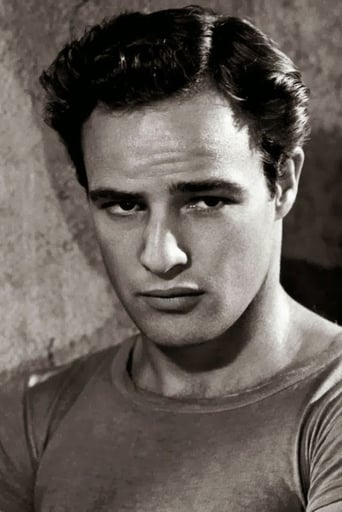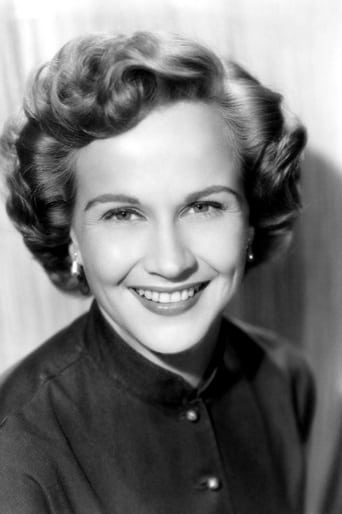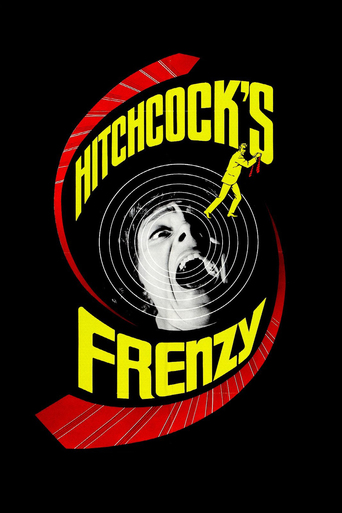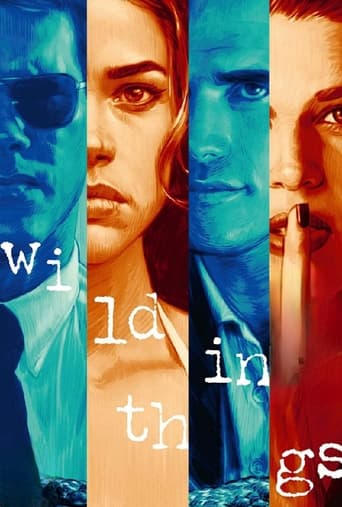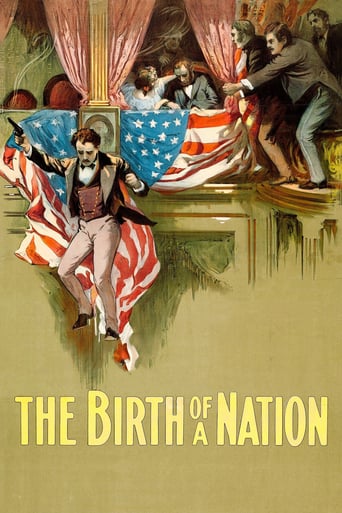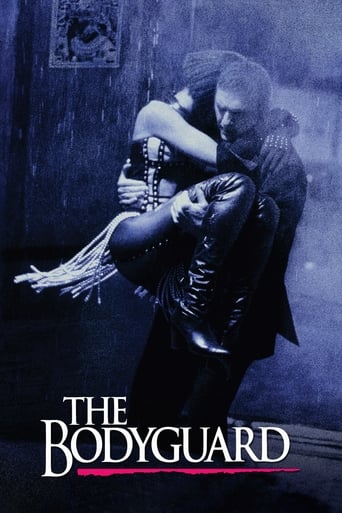A Streetcar Named Desire (1951)
A fading southern belle moves in with her sister in New Orleans where her ferocious brother-in-law takes stabs at her sanity.
Watch Trailer
Free Trial Channels
Cast


Similar titles
Reviews
Just so...so bad
A film with more than the usual spoiler issues. Talking about it in any detail feels akin to handing you a gift-wrapped present and saying, "I hope you like it -- It's a thriller about a diabolical secret experiment."
This is a must-see and one of the best documentaries - and films - of this year.
I enjoyed watching this film and would recommend other to give it a try , (as I am) but this movie, although enjoyable to watch due to the better than average acting fails to add anything new to its storyline that is all too familiar to these types of movies.
The 50's marked an important period for filmmaking, mostly because of the transitory value the decade had. The pictures were changing, that's a certain thing. But in which way? Elia Kazan, already a Broadway legend by the time he directed "A Streetcar Named Desire", is one of the most influential Hollywood directors of all time. His film "On The Waterfront" is widely considered one of most representative pieces of American cinematography and it's often quoted among critics. However, "A Streetcar Named Desire" is not a let-down either. The film is noticed mostly for two reasons: the use of jazz music (being the first film to do use it) and, of course, Marlon Brando. I'll try not to create a Marlon Brando review out of this, so I'll tell you only what you need to know. Brando is one of the first actors to introduce America to the Stanislavski acting system (on screen that is). This style of acting proved to be somehow more effective than the traditional methods because the actors could show a more natural approach to certain feelings and emotions. "A Streetcar Named Desire" is a highly significant film both culturally and historically, and it influenced many later films. Since most critics already spoke about the importance of the film and of Marlon Brando, I myself will try to talk more about the artistical value of the film and Vivien Leigh's performance as Blanche. Blanche's conflict with Stanley (Brando) is destrucitve in every possible way; they hate each other, or at least that's what they think. She's feminine, seductive and easy to hurt; he's barbaric, sexual and strong. She lives in an imaginary world so she can avoid being hurt; he's a man who knows what he wants and how to get it. "I've always depended on the kindness of strangers", Blanche says. A most painful quote to hear (or read). Stanley has a way to deal with reality while Blanche has another. They both have issues. Blanche uses the warmth of strangers to deal with pain while Stanley uses alcohol. It's obvious that one is a victim and the other is a dealer of pain, but they both represent different ways of survival. Blanche's way is self-destrctive and she's aware of this fact; she doesn't show her real emotions and adopts a submissive position. Stanley makes himself heard through the use of violence; the other people need to know who is the dominant individual and they'll learn it by any means. Elia Kazan was one of the most influential directors of Hollywood, and "A Streetcar Named Desire" is just another proof for that fact. The use of unique music, beautiful imagery and memorable dialogue goes along very well with the performances of Leigh and Brando, who represent maybe the most important part of the film's magic. This film is a great study of character and conflict and...well, a great movie overall.
She's a prissy "wannabe sophisticated", but past her prime for the times, and out of men to play. He's her social opposite. He's living in the "now", won't allow dreamy non-sense to be spoken in his castle, which just happens to be a seedy basement apartment in New Orleans French Quarter. Their surrounding are cheap and that's where the confrontations begin. Vulgar and bright, is our testosterone fueled ogre, barely draped in a t shirt so tight that imdv lists it amongst its' trivia! She's a freaking nutcase who attempts to cover up the truth behind her many shameful transgression with endless blabber about a dreamworld that's just as nauseating. This is one of the best dramas I ever had the pleasure of losing myself in. Elia Kazan doesn't let you out of your small corner while you await each confrontation, yet this would have boiled over early if not for our married sister caught in the middle.Marlon Brando was absolutely brilliant and Vivien Leigh, in the later stages of her "Scarlett" genre was completely terrifying in her cover up acting inside of the characters she floated willingly down the Denial River. The sympathetic plight belongs to Kim Hunters' Stella until the censored end. Would get 10/10 if not for those who stole our script and meaning. This is a story of confrontation that could have been even more of a social juggernaut!
Released in late 1951 and directed by Elia Kazan based on Tennessee Williams play, "A Streetcar Named Desire" stars Vivien Leigh as the neurotic Blanche DuBois, who moves in with her sister (Kim Hunter) in the French Quarter of New Orleans where she is antagonized by her brutish brother-in-law, Stanley (Marlon Brando). As she seeks a relationship with one of Stanley's friends (Karl Malden) her reality crumbles around her.The story is thematically rich and I enjoy evaluating and interpreting it. For instance, Blanche represents the dying Southern aristocracy, its airs of sophistication, its morality and delusions of superiority, whereas Stanley Kowalski represents the simple primal world of working class immigrants and the moral decay of modern society or, at least, its veneer of morality (which is the root of legalism). But the way the conflict between Blanche and Stanley plays out shows that Williams doesn't advocate either side, which leaves the audience uncertain on who to support. While Blanche's initial arrogance shouldn't be condoned and deserved rebuked, I squarely side with Blanche as Stanley's ongoing (and increasing) assaults become less and less justifiable.What Blanche did or didn't do with the Dubois estate is a legitimate issue of contention and the truth needed to be pursued, aggressively if necessary; but most of the other issues Stanley has with Blanche are basically none of his business. After all, everyone has shameful skeletons in their closets, even Stanley, but he's too oafish to likely ever admit it. One critic erroneously criticized Blanche for being a "pedophile," but he obviously doesn't know the definition of the word. Pedophilia refers to a persistent sexual fascination with pre-pubescent kids. The worst Blanche can be accused of is ephebophilia, which is an attraction to those in their later teens, 17 and up. This condition is balanced out by her serious romantic interest in Mitch (Malden).People rave about Brando's acting in "Streetcar," but there are far better examples of his genius, such as "The Young Lions" (1958), "One-Eyed Jacks" (1961), "Mutiny on the Bounty" (1962), "The Missouri Breaks" (1976) and "Apocalypse Now" (1979), to name a handful. Marlon's portrayal of Kowalski is undermined by the needlessly antagonistic nature of the character. In other words, the performance might be excellent, but the character is so distasteful it's hard to appreciate it.This is one of the main eye-rolling problems with the story and the movie: The characters are too one-dimensional and unbelievable. Blanche is the drama mama with airs of sophistication, Stanley is the animalistic brute, Stella is the blindly loyal wife and Mitch is the infatuated dumbaxx. Leigh's depiction of Blanche is so over-the-top and artificial it would've received a Razzie if the film were released a mere decade later. And I'm not blaming Vivien; she did the best she could with the melodramatic script.Even worse, you have ridiculous elements, like the idea that Mitch was never able to see Blanche in the full light of day, so to speak, even though he took her on a date to the pier. The whole "dimming the lights" component is absurd and poorly executed, especially in light of Vivien's obvious beauty, whatever her age. In reality, Mitch would (and should) be worshipping at her feet for eternity, regardless of any skeletons of her past.Then there's the preposterous explanation of the suicide of an off-screen character. In the play the reason was that he was caught in a homosexual affair, which is interesting and works (particularly considering the time period), but they changed this for the movie due to the moral codes and they failed to pull it off, to be nice.BOTTOM LINE: The movie is thematically rich and has a great cast, but the execution is seriously problematic. The story's not compelling, the characters are aggravatingly one-dimensional and there are too many eye-rolling elements. If you want to see a good Tennessee Williams movie check out 1964's "The Night of the Iguana" or even 1960's "The Fugitive Kind" (the latter has its problems, but it's better than this). The ongoing praise of "A Streetcar Named Desire" is a good example of the emperor having no clothes.The movie runs 122 minutes (125 minutes re-release) and was shot at Warner Brothers Burbank Studios in California, with the bowling scene done in Los Angeles and the opening railway station filmed in New Orleans.GRADE: C-
"A Streetcar Named Desire" from 1951 is a brilliant adaptation of the Broadway play that catapulted Marlon Brando to superstardom. The performances in this film are formidable.There is talk on this board of Leigh's classic style of acting versus the "method" acting of the rest of the cast, but somehow it all works beautifully. Leigh's Blanche has all the frailty and disillusionment necessary to the character, as well as the sweetness and flirtatiousness. It is a delicate, soft, heartbreaking performance. We can see her disintegrate before our eyes, first after Mitche's total destruction of her emotionally, and then Stanley's destruction of her physically.Marlon Brando, with his bulging muscles and macho style, is the epitome of the new, non-class-conscious South, the swaggering man with the bad temper and the strong sexual hold he has on his wife. His performance needs to be appreciated as it was in the time period with all the handsome, heroic, classic leading men, well spoken, and wearing tuxes. Enter this walking, talking, overt sex machine, a real macho man with his mumbling voice, tousled hair, t-shirt, and major attitude. It was a shock. It was even a shock to Tennessee Williams, since the main character is supposed to be Blanche. It wasn't on Broadway.Here, Elia Kazan's skillful direction and the magnificent acting brings the play into balance and shows the new south obliterate the old south of jasmine perfume, pretty frocks, and class distinctions.Someone said Leigh's Blanche was an extension of Scarlett O'Hara had we seen her age. But Scarlett was one who changed with the times. In what was left of her mind, Blanche was stuck in the old days of manners, flirtation, and gentleman callers.An incredible play, a beautiful film, even with the slightly softened ending. Because we know Stella will return to Stanley, no matter what he did to her sister. The game, after all, is "seven-card stud," the last words in the play. In that game four out of seven cards are exposed to other players. Like the game, certain aspects of human nature, such as cruelty, remain hidden. Poker is based on the ability to bluff. Stella is also trapped in a world of fantasy, perhaps even more so than her sister.


